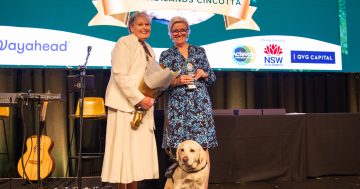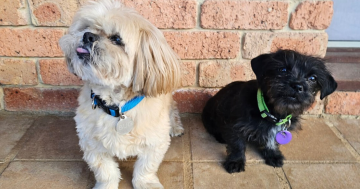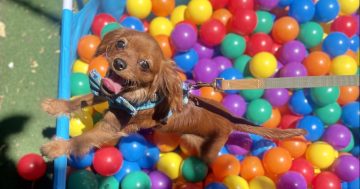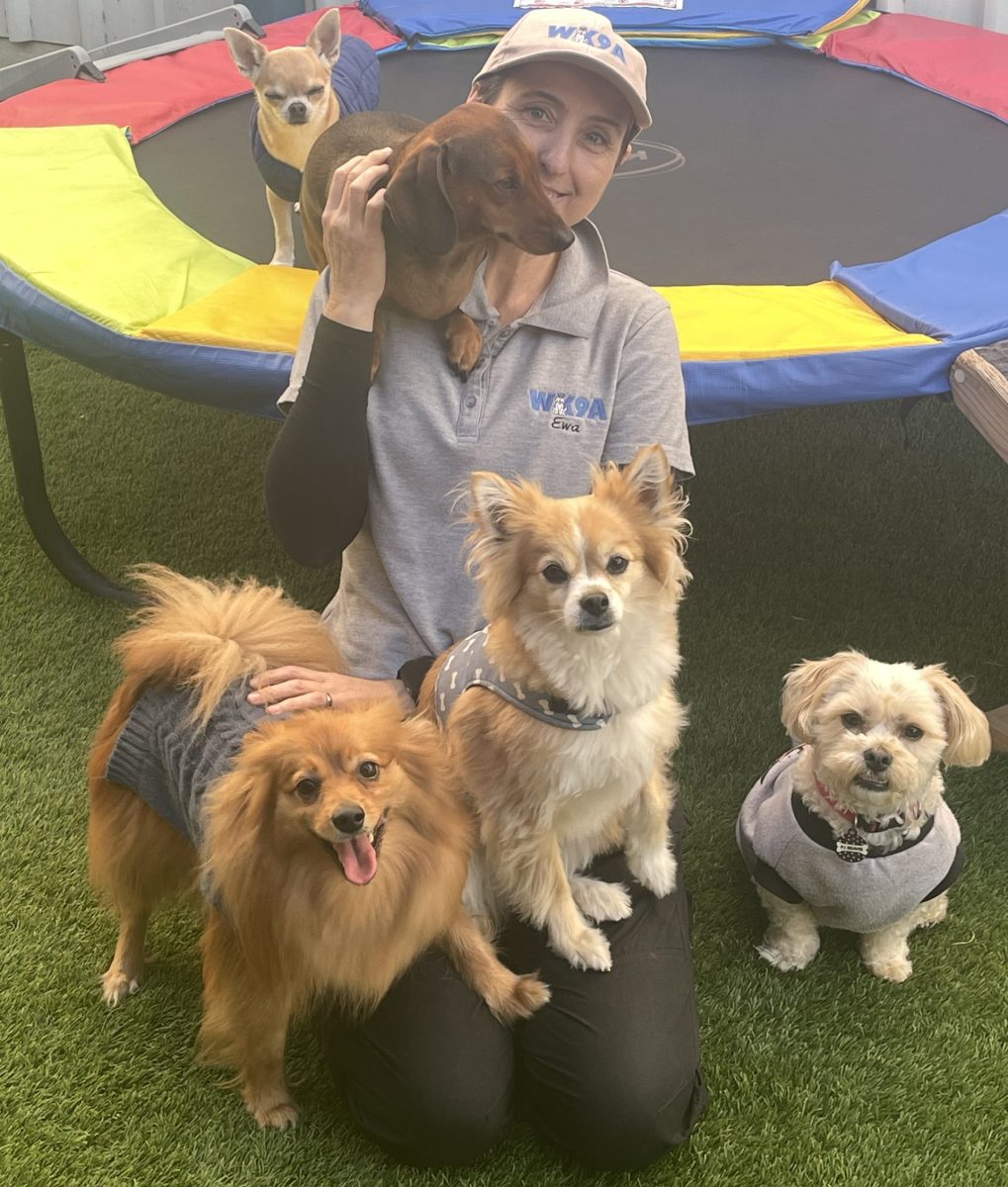
Ewa Mantaj founded Wollongong K9 Academy last year. Photo: Wollongong K9 Academy.
Though she took a winding path, it was clear from a young age that Wollongong K9 Academy founder Ewa Mantaj was destined to work with animals.
From as young as eight she could regularly be spotted walking the dogs of neighbours and family friends along the busy suburban streets of her native Poland.
“For as long as I can remember I’ve been drawn to animals,” she says. “Every time we had visitors, I’d be more interested in their pets than the people … When we’d go on holiday at a farm stay, I’d spend most of my time in the stables and pens.”
Ewa has owned many dogs of her own since then, but she’ll never forget the first – Mika.
“She was a mutt that followed us home. She was absolutely crazy,” she says.
“I had to train her because she was un-walkable. If you let her off lead she’d chase the front wheel of a car and try to bite it. Our apartment building was on the corner of a major six-lane highway with trams in the middle. She got out a couple of times and caused mayhem.”
After completing a science degree with a joint major in psychology and biology and post-graduate to master’s degrees in psychology from the University of Wollongong, Ewa became a police officer for the NSW Police. When an injury threatened to limit her to a desk job, she retrained to be a science teacher for the next 18 years.
All the while, unable to stay away from working with animals, she volunteered in canine education and became fascinated with the science behind animal behaviour.
“Science is my background, it’s how I think,” she says. “I understand the value of an evidence-based approach.”
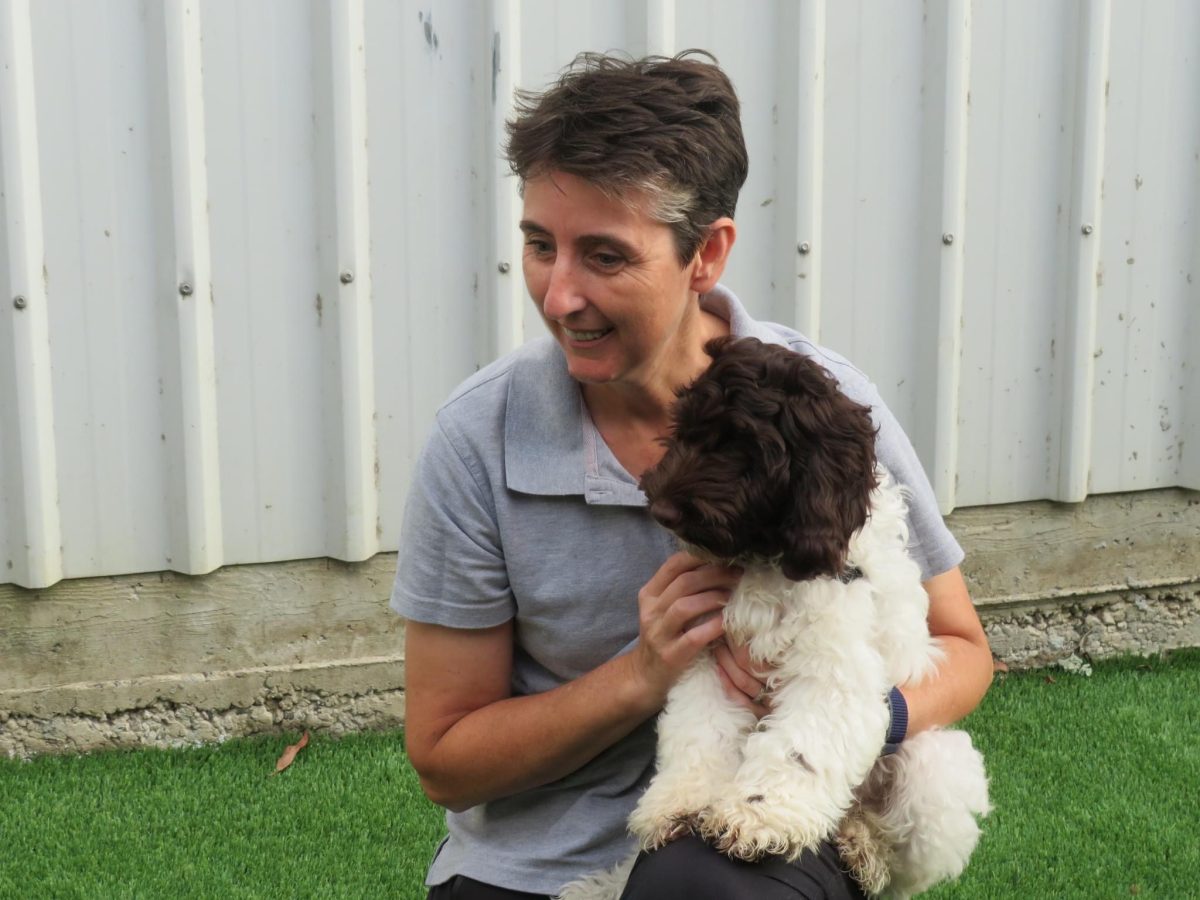
Ewa is on a mission to reduce the incidence of dog euthanasia and rehoming for preventable behavioural issues. Photo: Wollongong K9 Academy.
Last year Ewa finally combined this fascination with her undying love for our four-legged friends to open Wollongong K9 Academy.
From puppy daycare to behavioural troubleshooting, Ewa offers a suite of services covering the spectrum of canine education needs. Her mission is to reduce the incidence of dog euthanasia and rehoming for preventable behavioural issues.
“That’s 99.9 per cent of them,” she says.
“I created this business to help owners succeed in their dog owning journey, and that can begin from before they even own a puppy when we go into their home and set them up to minimise problems and avoid ‘puppy panic’.”
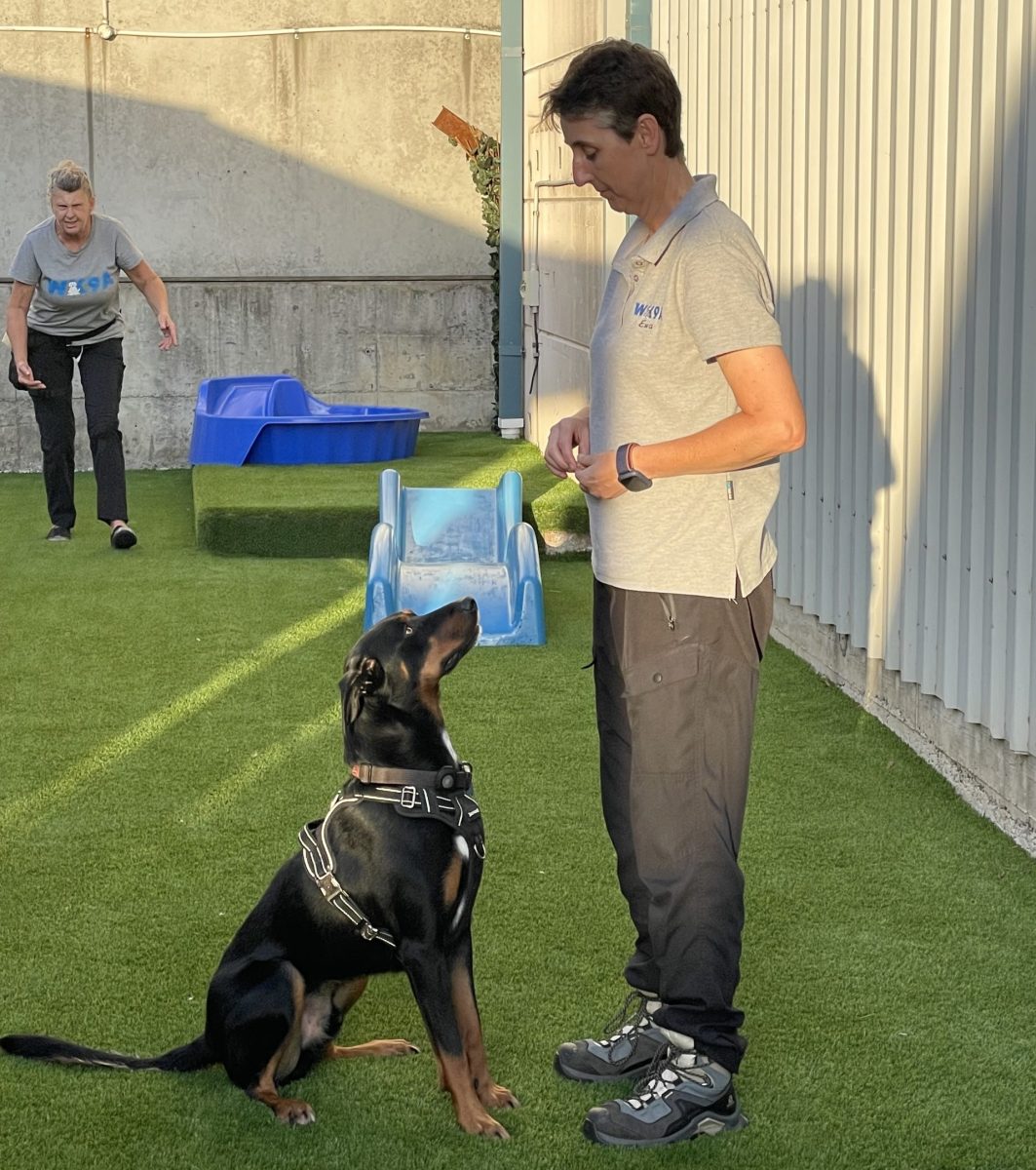
Ewa says 99.9 per cent of behavioural issues in dogs are preventable. Photo: Wollongong K9 Academy.
Puppy panic describes when a person’s expectations of puppy ownership are shattered by the initial realities.
According to Ewa, it’s part of a broader misconception people tend to have – that because they love dogs, are good with animals or once owned a dog successfully, that they know how to raise any dog.
“They bring this puppy home thinking it’ll be all kisses and sunshine and their puppy dreams soon turn into a nightmare when all puppy does is eat, chew and cry. Then puppy panic sets in and they go on YouTube or read a few articles, but there’s a lot of misinformation out there.
“In my experience the most pervasive misconception people have when they buy puppies is they they’ll innately know everything a mature dog does. Puppies aren’t wired to walk on a leash or know where to toilet or how to toilet, what to chew and what not to chew.
“Too many people assume this, and the proof is all the animals in shelters and rescues. And if you talk to the average vet, many will tell you they have to put a perfectly healthy dog down for behavioural issues once a week. There’s nothing wrong with these dogs; they’ve just had the wrong start in life.”
Ewa says while most behavioural problems can be trained out with time, dedication and money, early intervention where possible is best.
She reckons most puppies can be toilet trained in seven days if done right. As with any good training, knowledge and consistency are key.
“Every time a dog does something, they’re practising to do it more. If you allow a puppy to make mistakes here and there, each mistake is another 10 coming,” she says.
“It’s not hard to set them up to optimise their training and minimise those mistakes before they become entrenched.
“Anxiety plays a major role in their training success as well. Statistically two out of five dogs have some anxiety to varying degrees, and dogs with anxiety are more likely to develop behaviour issues. It can have a big impact on their ability to learn and adjust. But they’re no less deserving of a safe and happy home.”
For more information contact Wollongong K9 Academy.










